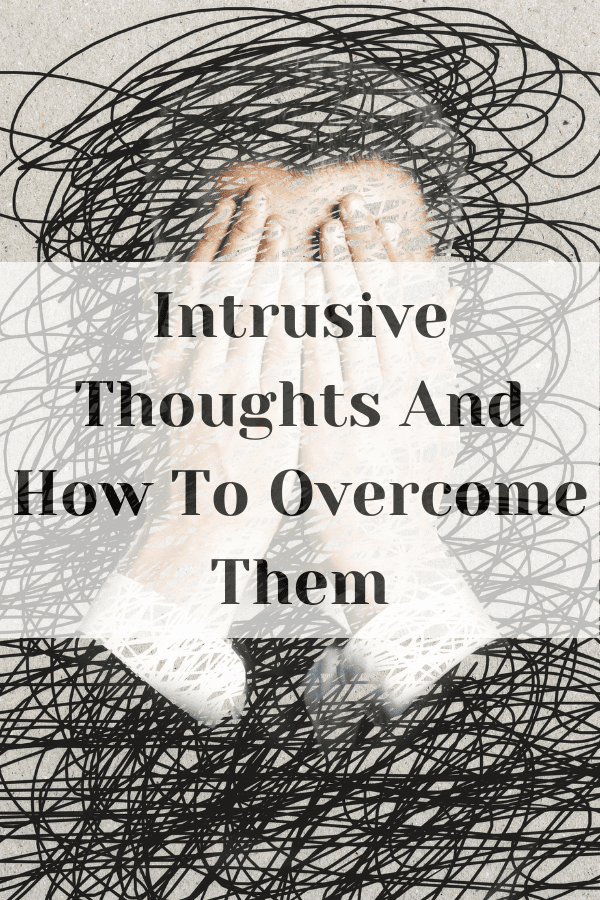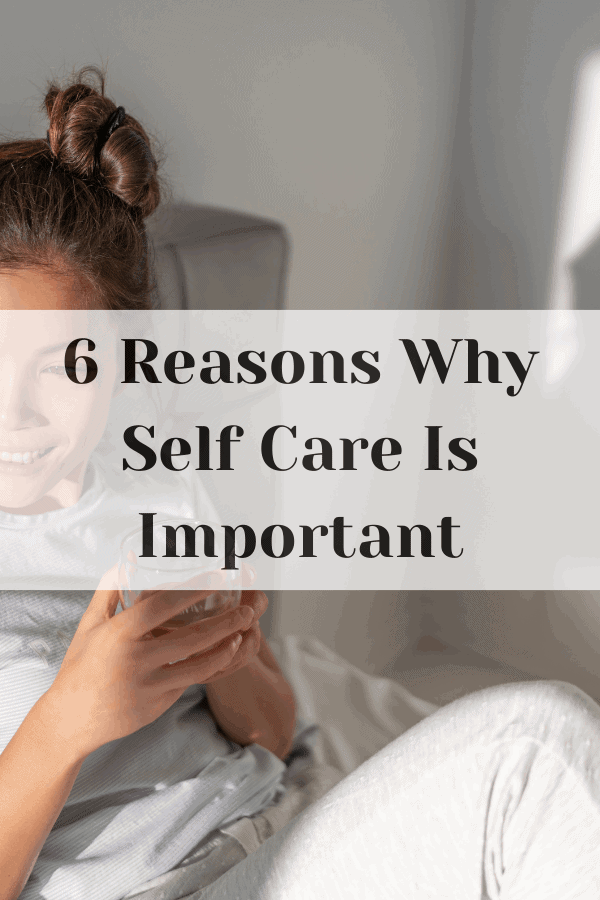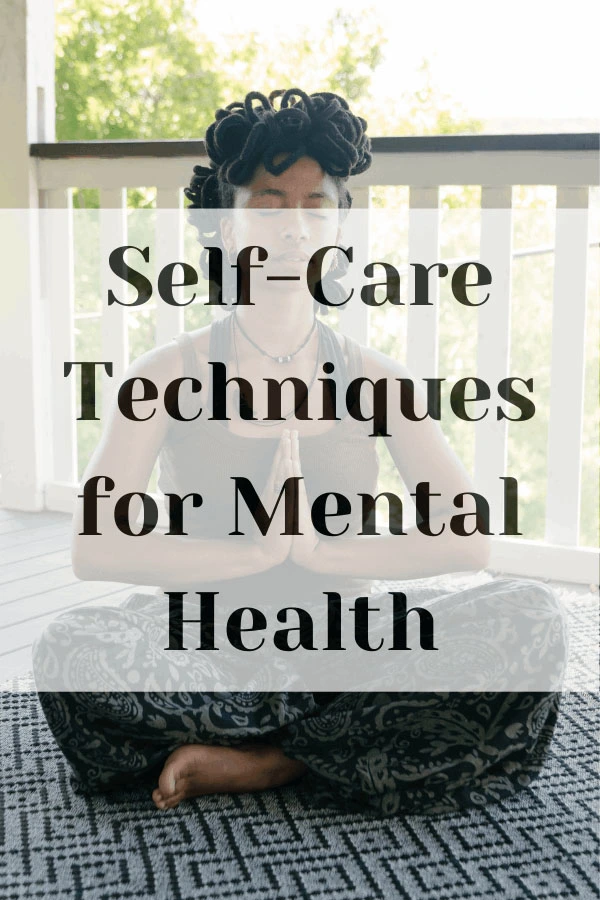Intrusive Thoughts and How To Overcome Them

Intrusive thoughts are those unexpected, often distressing ideas or images that pop into our minds uninvited. They might be unsettling and unrelated to our everyday intentions, yet they can feel very real and troubling.
For me, this became the norm when I became a mother. Fears for my child’s safety, irrational worries about my parenting mistakes, or anxieties that seem to come out of nowhere. I felt alone and as if no one else suffered from this.
However, you’re not alone if you’ve experienced these thoughts—they’re surprisingly common.
However, it often feels like no one talks about it. The stigma surrounding mental health can create a sense of isolation, as though these unwelcome thoughts make you a bad person.
But in reality, having intrusive thoughts doesn’t mean you’re failing. They are a part of the mind’s natural response to stress or anxiety, even if they seem to come at the worst possible times.
In this post, we’ll explore what intrusive thoughts are, why they occur, and how you can navigate through them with effective strategies.
This blog post is about intrusive thoughts

What Are Intrusive Thoughts?
Intrusive thoughts are sudden, involuntary thoughts or mental images that can cause significant distress.
They can be shocking or disturbing because they often involve scenarios contrary to our values and intentions.
For example, a mother might suddenly imagine her child being harmed, even though she would do anything to keep them safe. These thoughts are entirely involuntary; they just pop into the mind uninvited and unwanted.
Despite their vividness and unsettling nature, it’s crucial to recognise that intrusive thoughts are not reflective of your true character. Instead, they are often a byproduct of anxiety or stress.
Just because you have these thoughts doesn’t mean you want them to happen or that you will carry them out.
Examples of Intrusive Thinking
Intrusive thoughts aren’t limited to parenting and motherhood. They can occur in anyone and often involve unsettling scenarios that provoke anxiety or distress. Here are some general examples:
Violent Thoughts
- Unwanted images of causing harm to others, even though there’s no intention or desire to do so.
- Fear of losing control and hurting yourself or others in stressful situations.
Religious or Moral Thoughts
- Fears of having sinned or blasphemed against religious beliefs, even unintentionally.
- Distressing doubts about one’s morals or character, like feeling guilty over imagined offences.
Health-Related Thoughts
- Obsessive worry about having a serious illness, despite medical evidence to the contrary.
- Anxious thoughts about being contaminated by germs or spreading illness to others.
Safety-Related Thoughts
- Persistent thoughts that something catastrophic will happen, like a car accident or natural disaster.
- Imagining harm coming to loved ones through unlikely events.
These thoughts can be alarming, but it’s important to understand that they don’t reflect true intentions or desires. They are involuntary, often exaggerated, and can be managed through various coping strategies or professional help.
Causes and Triggers
Intrusive thoughts don’t arise out of nowhere; several underlying factors can contribute to their occurrence. Understanding the causes and triggers can help reduce these thoughts.
1. Hormonal Changes
For mothers, hormonal shifts can play a significant role. Pregnancy, childbirth, and breastfeeding can all cause significant fluctuations in hormone levels. These changes impact the brain’s chemistry, potentially making women more prone to anxiety and intrusive thoughts.
2. Sleep Deprivation
Sleep is vital for emotional regulation. Chronic sleep deprivation increases irritability, lowers stress tolerance, and can exacerbate intrusive thoughts.
3. Past Trauma
Traumatic experiences, particularly unresolved ones, can leave psychological scars. Individuals with a history of abuse, neglect, or other significant stressors are often more susceptible to anxiety and the onset of distressing thoughts.
4. Stress and Anxiety
The daily challenges of life, managing work, and maintaining a household can lead to overwhelming stress. Anxious minds tend to fixate on worst-case scenarios, giving rise to unwanted thoughts that feel out of control.
5. Parenting Challenges
The demands of parenting can amplify fears and self-doubt. For example, concerns about being a “bad mother” or failing to protect your child can trigger repetitive, intrusive worries.
6. Perfectionism
Perfectionism leads to constant self-monitoring and anxiety, which often manifests as repetitive negative thinking.
7. Mental Health Conditions
Existing conditions like obsessive-compulsive disorder (OCD), generalised anxiety disorder (GAD), or depression can heighten one’s vulnerability to intrusive thoughts.
Recognising the potential causes and triggers can help reduce the power these thoughts hold over us. Being aware that they stem from stress, sleep deprivation, or other external factors—rather than reflecting personal failings—can be a key step toward understanding and overcoming them.
Impact Of Intrusive Thoughts
Intrusive thoughts can have a profound impact on daily life, influencing both behaviour and emotional well-being.
Disruption of Daily Activities
Concentration Challenges
Intrusive thoughts can make it difficult to focus on tasks at work or home. They might interrupt while you’re trying to concentrate, causing repeated breaks in focus, which can lead to decreased productivity and increased frustration.
Interference with Parenting
For mothers, these thoughts can intrude during moments of interaction with their children, such as during playtime or routine care, making it hard to remain present and engaged.
Emotional Impacts
Guilt
There’s often a significant amount of guilt associated with intrusive thoughts, especially if they involve harm or neglect towards loved ones. Mothers might feel guilty for even having such thoughts, which they mistakenly believe reflect their true feelings or potential for action.
Anxiety
The nature of these thoughts can provoke intense anxiety. The fear that these thoughts might somehow come true or that having them is ‘wrong’ can lead to heightened anxiety levels.
Shame
Because of the often taboo nature of the content of intrusive thoughts, individuals may feel ashamed, fearing that others would judge them harshly if they knew about their thoughts. This shame can lead to isolation, as individuals may avoid discussing their experiences even with close friends or family.
Social and Relational Impact
Withdrawal from Social Activities
The burden of managing intrusive thoughts can lead individuals to withdraw from social interactions to avoid triggers or because they feel others wouldn’t understand.
Strained Relationships
The stress of dealing with these thoughts can spill over into personal relationships, causing tension and conflict. Partners may not understand why the individual seems distracted or irritable, leading to misunderstandings.
Physical Health Effects
Sleep Disturbances
Ongoing anxiety and stress from intrusive thoughts can lead to problems with falling asleep or staying asleep, compounding physical tiredness and emotional fatigue.
Decreased Immune Function
Chronic stress can weaken the immune system, making you more susceptible to illnesses, which can further affect your mood and stress levels.
By acknowledging the effects of intrusive thoughts on daily life and emotional health, you can start to seek appropriate support and strategies to manage and reduce their impact.
Strategies To Cope and Overcome
When coping with intrusive thoughts, it’s essential to remember that they don’t define you and can be managed effectively. Here are some practical strategies and therapeutic options to help overcome their grip:
Mindfulness and Grounding Exercises
Mindfulness Practices
Mindfulness involves being fully present and aware of the current moment without judgment. Practices like deep breathing, guided meditation, or simply observing your surroundings can help. Recognise the intrusive thought as just that—a thought. Instead of reacting emotionally or feeling compelled to suppress it, gently redirect your focus back to the present.
Grounding Exercises
These exercises help anchor you to the present moment, making it easier to break the cycle of distressing thoughts. Techniques like the 5-4-3-2-1 method (identifying five things you can see, four you can touch, three you can hear, two you can smell, and one you can taste) engage your senses and shift your attention away from intrusive thoughts.
Cognitive-behavioural therapy (CBT)
Exposure and Response Prevention (ERP)
This form of therapy involves gradually exposing yourself to triggers that provoke intrusive thoughts, while consciously resisting the urge to respond with avoidance behaviours. Over time, the mind learns that the thoughts are not dangerous or indicative of reality.
Cognitive Restructuring
This technique helps identify and challenge distorted thinking patterns. By reframing negative assumptions and beliefs about intrusive thoughts, it’s possible to reduce their emotional impact.
Self-Care Practices
Healthy Lifestyle
Adequate sleep, balanced nutrition, and regular exercise can improve mental well-being, making it easier to manage stress and anxiety that might fuel intrusive thoughts.
Relaxation Techniques
Activities like yoga, deep breathing exercises, or taking leisurely walks can be effective for reducing overall stress levels and calming the mind.
Support Networks
Social Support
Reaching out to trusted friends, family members, or support groups can help ease the burden of intrusive thoughts. Knowing you’re not alone provides reassurance and reduces feelings of isolation.
Professional Support
Consulting a therapist or counsellor experienced in dealing with anxiety and intrusive thoughts can provide tailored guidance. Professionals can introduce evidence-based techniques and provide a safe space to discuss fears without judgment.
By integrating these strategies into daily life, intrusive thoughts can gradually lose their power over emotions and behaviour. Seeking help and practising self-compassion are important steps toward recovery.
By acknowledging your struggles and seeking the right strategies and support, you can begin to weaken the hold these thoughts have over you.
Push yourself to share your experiences and seek help, knowing that the path forward involves recognising the commonality of intrusive thoughts and embracing hope through support.
This post was about intrusive thoughts
Share this post: on Twitter on Facebook






